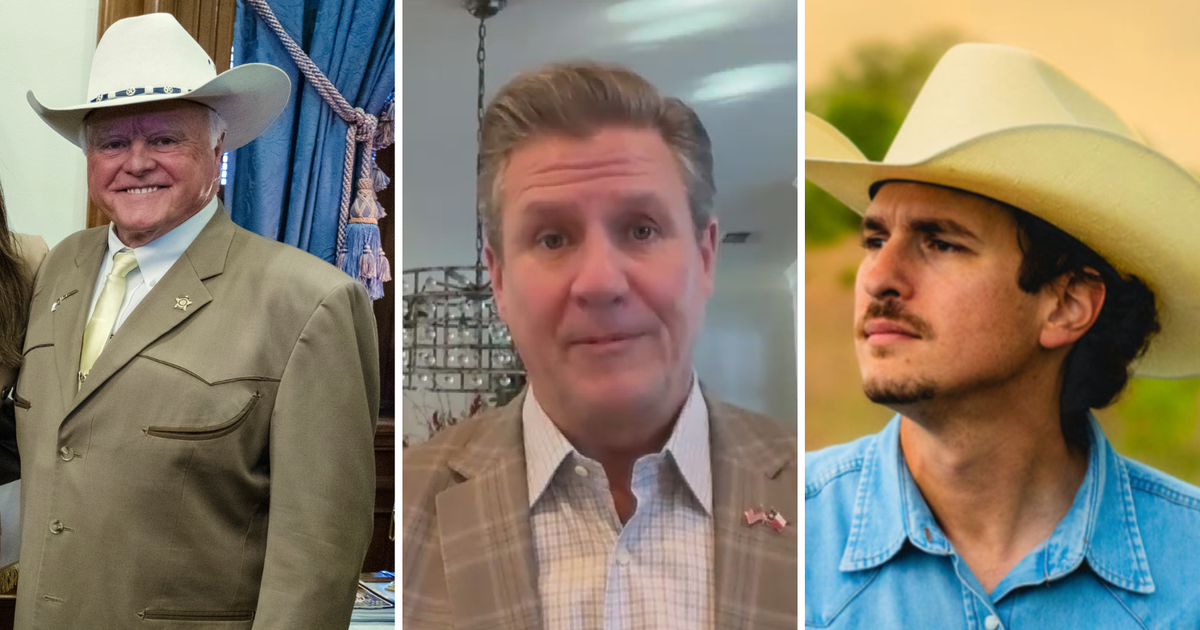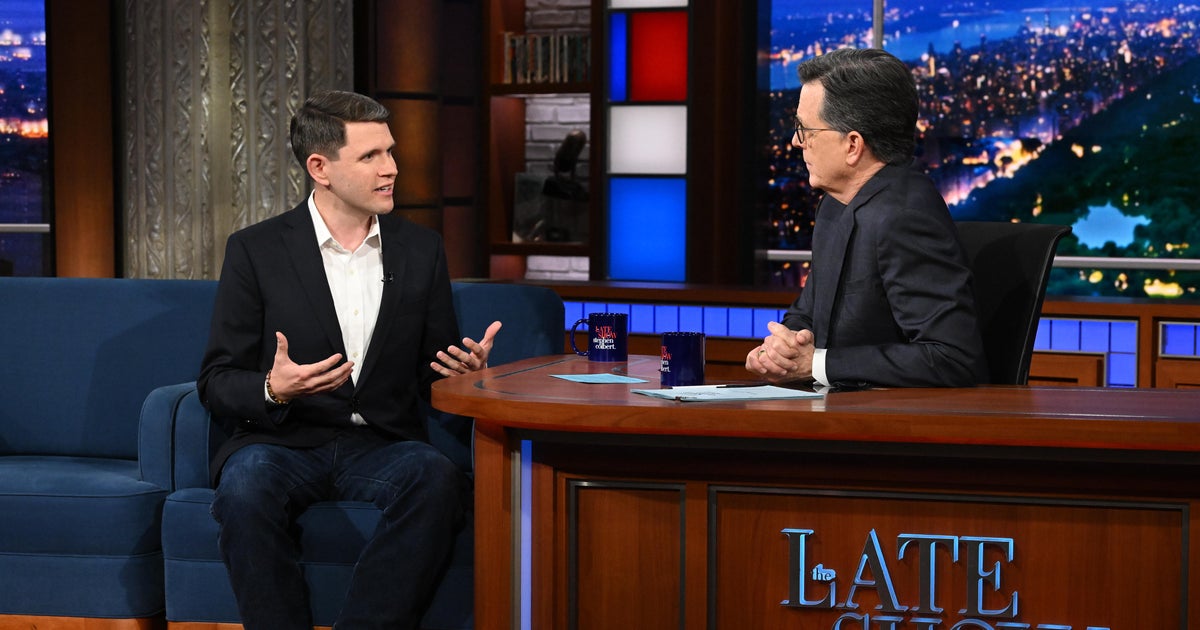Transcript: Scott Gottlieb discusses coronavirus on "Face the Nation," April 12, 2020
The following is a transcript of an interview with former FDA Commissioner Scott Gottlieb by CBS News' Margaret Brennan that aired Sunday, April 12, 2020, on "Face the Nation."
MARGARET BRENNAN: Former FDA commissioner Dr. Scott Gottlieb has been helping us on FACE THE NATION educate our viewers since we began devoting our broadcast to COVID-19 coverage. And he joins us from his home in Connecticut once again this morning. Thank you for your help. Doctor, I want to ask, both the governor and the mayor said before they even consider what Dr. Fauci said, which is a rolling reopening in- in their areas that they need surveillance, they need testing. They need things that they say they do not have in place right now. Who's leading that effort? Whose job is that?
DR. SCOTT GOTTLIEB: Well, unfortunately, I think it's going to be the states leading the effort. I- the feds are going to backstop the states, but the feds are pretty tapped out as well and- and didn't have a lot of resources to put against this. To give you sort of a basis for comparison, you're gonna be hearing testing, tracing, treating as sort of the mantra going forward. And the tracing part of that, that's actually doing contact tracing. When you identify people who have the infection, you want to trace who their contacts are. To give you sort of a reference, in Wuhan in China, they had 1,800 teams of five people each doing contact tracing at the height of that epidemic, so about 9,000 people. Right now, CDC has about 600 people deployed across the country. The states are supplementing that, but the states need to increase their resources now. The feds are gonna have a hard time pulsing their resources in the throes of this crisis. So I think it's going to be up to the states, and a lot of it's going to be on the governors. In Massachusetts, you saw Baker make a move to hire 1,000 people to do that contact tracing work. Other governors are going to have to follow that lead.
MARGARET BRENNAN: Well, the difference between China and the United States is protection of civil liberties here. So how do you do something like surveillance, which is an uncomfortable world- word for a lot of people here? Is it something like an app like Apple and Google proposed this week?
DR. GOTTLIEB: Well, that app- that's a platform that- that Google and Apple are- are fashioning. It's basically like a pipeline for public health authorities in states or localities to try to use it if they want to do electronic contact tracing. I think a lot of people are going to be concerned about that. But remember, contact tracing is sort of the bread and butter of public health work. We do this when we have outbreaks of multi-drug resistant tuberculosis or measles, where when you identify people who have an infection, you want to identify people who they were in contact with, isolate them and get them tested as well. That's how you can control outbreaks. I think one of the concerns that we need to address right now is what happens when you identify someone who has the infection? You're gonna want them to self-isolate for a period of time while they're infectious. But people may be reluctant to do that and they may be reluctant to have governments enforce that self-isolation, say you have to stay at home for two weeks. And so I think businesses need to think about how they provide compensation, basically paid leave for people who are forced to self-isolate because they have the infection. And the government might actually want to pay those people to give them an incentive to step forward, because if it's seen as punitive, if it's seen that when you get COVID-19, you're going to be forced to self-isolate for two weeks, you're going to miss work and you're going to be out of money, then people aren't going to want to step forward--
MARGARET BRENNAN: Yeah.
DR. GOTTLIEB: --and get diagnosed. And you don't want to create a disincentive to diagnosis.
MARGARET BRENNAN: Doctor, stay with us. I have to take a commercial break here, but I'll be back in a moment with you and stay with us.
(COMMERCIAL BREAK)
MARGARET BRENNAN: Welcome back to FACE THE NATION. We want to pick up where we left off with former FDA commissioner Dr. Scott Gottlieb. We were talking about the projection by Dr. Fauci that you could have a rolling reopening of the economy by next month. What parts of this country have the systems in place or the ability to open up that soon?
DR. GOTTLIEB: Well look, I don't think anyone's optimized really right now. We're not going to have the testing in place. We're not going to have the public health employees hired to do the effective contact tracing. So, you know, there's no question we're going to be opening at some- at some risk. I think that's inevitable. There's a lot of pressure right now from the business community on not just the administration but governors as well to start reopening the economy. So I think inevitably we're going to see a slow reopening of business activities through May with some risk, but there's always going to be risk. And if you ask public health officials like me what the optimal amount of testing is, the answer we'll give is more. But we're not going to be where we want to be. So I think you're going to see a gradual reopening where businesses- where governors and mayors say, well, businesses can reopen, but you can only bring back 50 percent of your employees that are on any one shift. So you force the employers to break up the shifts. Maybe you tell people over the age of 65 to stay home a little longer. You tell businesses you can't have meetings more than 10 people. You can't have conferences. So there'll be measures put in place to try to limit interactions at the workplace, but allow some work to get on.
MARGARET BRENNAN: The FDA has said it- it may approve a serology test. That's the- the test for the antibodies in your blood in sometime in the next few weeks. What does that do to your timeline and how widely available would that be?
DR. GOTTLIEB: Well, it may be widely available, but I think it's of marginal utility and impact for these kinds of discussions. What serology tells you is if you have circulating antibodies in your blood, if you've been exposed to the virus and you've developed some level of immunity. But I think when we actually do serology on the population, we're gonna find the actual level of exposure across the population is very low, somewhere between maybe 2 or 5 percent, and I'd put on the low end of that range. That's certainly the modelling, the data coming out of Europe where they have anywhere from 2 to 5 percent of their populations exposed. If you look in certain professions, healthcare workers, police, people who work on grocery checkout lines, flight attendants, TSA agents, people who come in contact with a lot of people as part of their work, the rates may be higher, maybe on the order of 10 percent that have been exposed and developed some immunity. So you can make decisions in those professions to preferentially return certain people or put certain people on the frontlines right away. But on the whole, we're gonna find that a very small percentage of this population, certainly in the single digits have actually been exposed to this infection. So the perception that there's 30 or 40 percent that have been exposed and develop immunity, it's not going to be the case.
MARGARET BRENNAN: We know that this is a global pandemic. The president has said that he is reviewing U.S. funding to the World Health Organization. The U.S. gives about 100 million a year to it. They're leading the response around the world. What changes do you think need to be made?
DR. GOTTLIEB: Well look, I don't think this is a time to defund a W.H.O., given the fact that I think this is going to become epidemic in the southern hemisphere, in parts of the world that don't have resources to deal with- with this kind of a global issue. But the president raised a lot of valid concerns. China was not truthful with the world at the outset of this. Had they been more truthful with the world, which would have enabled them to be more truthful with themselves, they might have actually been able to contain this entirely. And there is some growing evidence to suggest that as late as January 20th, they were still saying that there was no human-to-human transmission and the W.H.O. is validating those claims on January 14, sort of enabling the obfuscation from China. I think going forward, the W.H.O. needs to commit to an after action report that specifically examines what China did or didn't tell the world and how that stymied the global response to this. I also think they need to embrace Taiwan's role in the global health community and allow them to attend the World Health Assembly. Right now, they've frozen China out, the W.H.O. has at sort of the behest of China, and that's hampered the global response because China's been a very important partner. To give you just one more anecdote, China didn't share the viral strains--
MARGARET BRENNAN: Right.
DR. GOTTLIEB: --and the W.H.O. should have made them do that. Had they share those early on, we could have developed a diagnostic test earlier, validated earlier.
MARGARET BRENNAN: Well, we will see what the president decides to do in the coming days. Dr. Gottlieb, as always, thank you for your time.
DR. GOTTLIEB: Thanks a lot.



